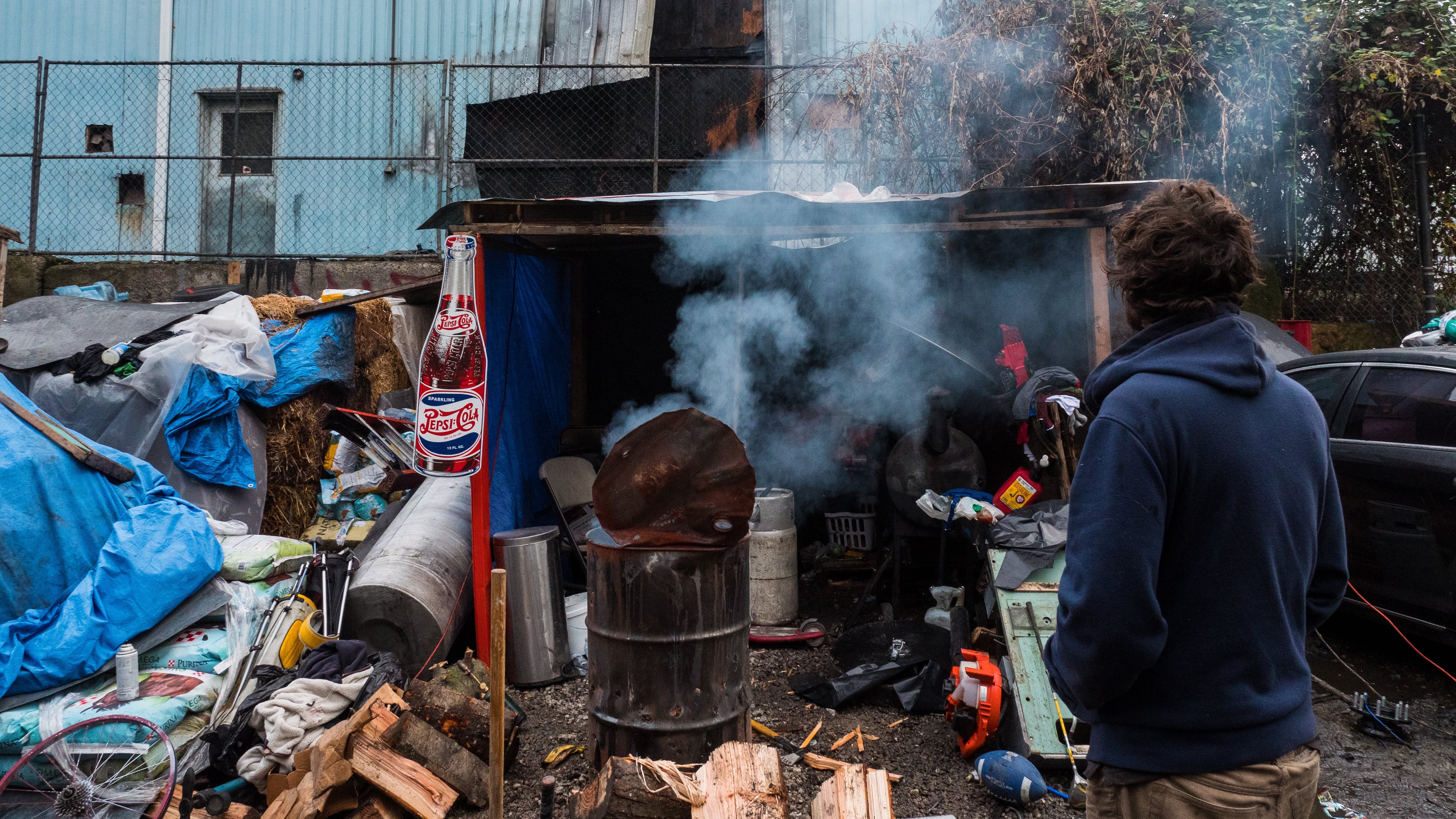Portland police arrested 39 people on outstanding arrest warrants while in the process of enforcing the city’s camping ban in the first five days of November.
That’s a remarkable figure, and shows that Mayor Keith Wilson’s resumption of the city’s camping ban is also resulting in a high number of arrests, though those arrests are not because people are violating the camping ban itself, but for unrelated crimes.
That statistic was included in new figures published by the city on Thursday afternoon that show the number of contacts, citations, warnings and arrests made between Nov. 1 and 5 under the city’s camping ban, which Wilson opted to resume at the beginning of the month.
“There were 40 physical arrests made during camping ordinance enforcement. Of those, 39 were for outstanding arrest warrants (meaning individuals were taken into custody because they had unresolved legal warrants),” city spokesman Cody Bowman tells WW. Bowman did not immediately say how many of those people have since been released from custody, either because the charges were dropped or while awaiting their next court date.
Bowman tells WW that “nobody was booked solely for being in violation of the camping ordinance.”
The Thursday data shows that the city contacted 101 people living in campsites in the first five days. Of those, the city found 81 people in violation of the ban. Eighty-three warnings were issued, and seven camping citations were issued. Thirty-nine people accepted a shelter bed and two agreed to attend the Multnomah County Deflection Center.
Wilson’s decision to resume the city’s camping ban was greeted with fierce opposition from some members of the City Council. One of those is Councilor Mitch Green, who said in a statement last week that criminalizing homelessness was cruel, expensive and ineffective.
Sweeping camps is a a “bad, cruel, and failed policy when the Trump administration does it, and it is a bad, cruel, and failed policy when the city of Portland does it,” Green said in an Oct. 31 statement. “Some will argue that sweeps are about safety and compassion, but the evidence is clear and overwhelming. Sweeps kill people.”
Green wrote that building more affordable housing needed to be the antidote, not criminalization. “We can either align ourselves with the politics of division, of sweeps, of cages, and of death, or we can choose the politics of solidarity, of housing, of health care, and of life,” Green wrote.
Just two days before the city published its statistics, the Portland chapter of the Democratic Socialists of America urged city councilors to “immediately launch a formal investigation into whether the mayor’s office wasted millions of taxpayer dollars to prop up a temporary shelter system that was designed to fail.”
The DSA’s co-chair, Brian Denning, said in a statement: “We have serious concerns that public funds were squandered to create a pretext for this camping ban. Did the mayor waste money on a shelter system he knew was insufficient, just to create a veneer of ‘available shelter’ and justify a punitive crackdown? The City Council has a duty to investigate this potential misuse of taxpayer money.”
(Four members of the council are DSA members: Green, Angelita Morillo, Sameer Kanal and Tiffany Koyama Lane. They’ve been receptive this year to bringing forth policy ideas backed by the DSA. Most recently, half the council—including the four DSA members—signed a pledge penned by the group in which the councilors promise to investigate any complicity with the Israeli military in the war in Gaza that may be taking place within city boundaries, including the manufacturing of weapons.)
Within the first year of his administration, Wilson has opened over 800 nighttime shelter beds, with the goal of opening 1,500 total by Dec. 1. While the mayor has said his goal is ensuring every homeless person has a warm and dry place to sleep every night, critics—including the DSA—have speculated that he’s chasing that goal just so he can more aggressively crack down on homelessness through the city’s camping ban.
“Pursuing open warrants is an important part of this strategy,” Wilson said in a statement accompanying the data. “For some, it’s an opportunity to resolve the issues keeping them on the streets, while others must be held accountable for preying on our community.”

